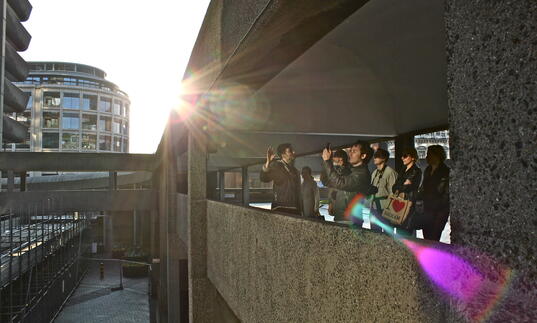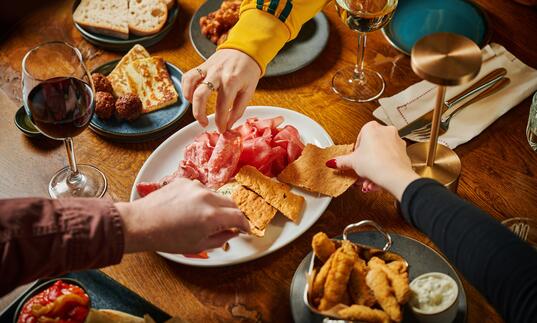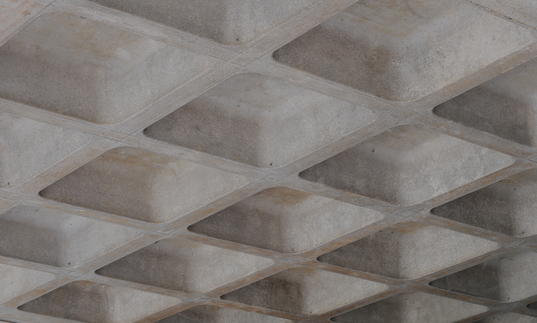These New Puritans: The Blue Door
Doors: 7.30pm
Start time: 8pm
Approximate running time: 90 minutes, no interval
Please note all timings are approximate and subject to change
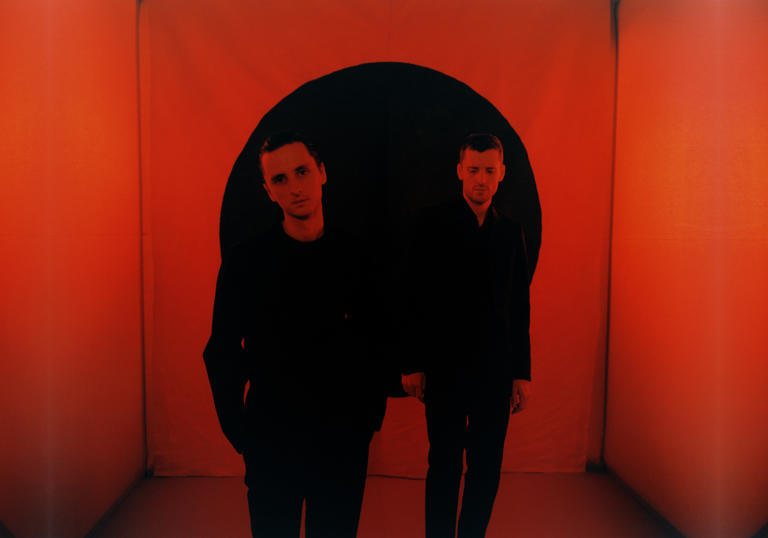
Elisa Bray talks to These New Puritans about their immersive new audio-visual stage show, specially commissioned by the Barbican.
Some twelve years ago, These New Puritans emerged as one of the most innovative and exciting bands in decades – with each album they released, twin brothers Jack and George Barnett from Southend-on-Sea, Essex shifted their sound in ambitious new directions.
Their post-punk-influenced debut album Beat Pyramid (2008) blended elements of hip hop and electronica inspired by Wu Tang Clan and Aphex Twin, while their critically acclaimed follow-up, Hidden (2010), dubbed by some as ‘dancehall meets Steve Reich’, was a thrilling melting pot of brass, woodwind, pitched percussion and hip hop, featuring a Czech orchestra and a children’s choir. With their third album, Field of Reeds (2013), they reinvented themselves once more, blurring the boundaries of experimental rock and neoclassical compositions that built upon the English experimental tradition of the likes of Robert Wyatt, Scott Walker and Talk Talk, included Portuguese fado singing and would be performed by a 35-piece orchestra. Then they reduced from a four-piece to a duo and put out their most accessible album yet: last year’s Inside the Rose (2019).
‘It was just what we naturally did,’ Jack has said of their shape-shifting tendencies. ‘There was no thinking about it.’ It’s summed up by a statement on their website which describes them as ‘an English experimental music group whose music is not easily categorised’.
These New Puritans’ shows are as ambitious as their releases. This new performance at the Barbican, entitled The Blue Door, continues their path of defying musical categorisation and promises to be the band’s biggest undertaking to date. The duo will perform reinterpretations and rearrangements of tracks from across their four studio albums, including 2019’s Inside the Rose as well as premieres of new material. ‘There’s a lot of contrast,’ explains Jack. ‘Rather than playing a full album – which has now been done to death – we are picking and choosing from ancient things to things we have written especially for this show.’
Their expanded line-up of a sixteen-piece band of sopranos, pitched and non-pitched percussion, brass, electronics and special guests will blur the lines of genre conventions as they mix the past, present and future; encompassing minimalist, electronic, contemporary, classical, metal, rock and industrial music, while tackling themes of ‘sex, death, transcendence and love at the end of the human age’.
It’s a feat to put together, but one that will feel seamless on the live stage. ‘The mixture of ways of understanding music presents logistical hurdles, but the result is something completely seamless, one unclassifiable band,’ says Jack. ‘If you don’t think in terms of genres then crossing them isn’t a problem. No matter the sound or the idea, I always want to present it in a clear way, to sharpen it to a point. I want all extremes of our music to coexist. I want the wildest sound to be accessible.’
This is not These New Puritans first time at the Barbican. The Blue Door follows their sold-out show TNP EXPANDED in April 2014, in which they performed their album Field of Reeds in its entirety, as well as Lost Chords; this in turn followed their acclaimed Hidden Live concert in autumn 2010, which featured Britten Sinfonia, a children’s choir, ten ft taiko drums, a five-piece brass-and-woodwind ensemble, multiple vibraphonists and live Foley techniques (the everyday sound effects that are added to films).
The Blue Door features their first-ever performance with an industrial stage installation as well as visuals from George Barnett (George has always been responsible for putting together the visual side of the band, while Jack takes the helm on the music) and a host of the band’s collaborators including photographer and director Harley Weir, and filmmaker and artist Daniel Askill.
‘This show is extending George’s vision to the furthest extent yet, with people like Daniel Askill and Harley Weir contributing,’ says Jack. ‘It’s a colossal amount to prepare as at its heart it’s very DIY, and always has been; 95% of it is just the two of us. I’m looking forward to it – as ever our goal is to take ourselves somewhere else.’
As the duo prepare for the performance, Jack recalls the band’s early days, when they played the likes of Chinese restaurants, youth clubs and fire-hazardous basements. ‘We used to turn up at indie discos and play music inspired by William Byrd and J Dilla, and we’d ruin everyone’s night. We were once paid to stop DJing because what we played didn’t fit with the categories the club had defined. But those experiences strengthened our resolve. It’s a kind of badge of honour and it made us laugh. But it does give you a sense of perspective. It’s a great privilege to be playing somewhere like the Barbican. You realise that more as time goes on.’
Doors: 7.30pm
Start time: 8pm
Approximate running time: 90 minutes, no interval
Please note all timings are approximate and subject to change
Performers
These New Puritans
Jack Barnett vocals, electric piano
George Barnett drums, electronics
Graham Sutton electric guitar
Chris Hamilton electronics
Hans-Henning Korb electronics
With
Joby Burgess percussion
Rob Farrer percussion
Dave Elliot percussion
Sam Wilson percussion
Christian Barraclough trumpet
Corinne Bailey french horn
Anna Douglass french horn
Andy Wood trombone
Adrian Miotti tuba
Micaela Haslam soprano
Kirsty Hopkins soprano
Jack Barnett arrangements
George Barnett creative direction
Harley Weir, Daniel Askill, Alexander Ingham-Brooke, George Barnett film
Freya Don textile installation
Claire Barrow painting
Satore Design Studio Lighting and Visuals
Tupac Martir creative director
Muly Yechezkel lighting designer
Alex Leyva creative producer
Liam Wedge 3D generalist
Mark Philborough-Smith unreal developer
Benjamin Gittos D3 programmer
Produced by the Barbican
Visiting on a Sunday?
Discover

Watch: These New Puritans - Six (Official Video)
These New Puritans are an English experimental music group whose music is not easily categorised and is formed by twin brothers George Barnett and Jack Barnett.
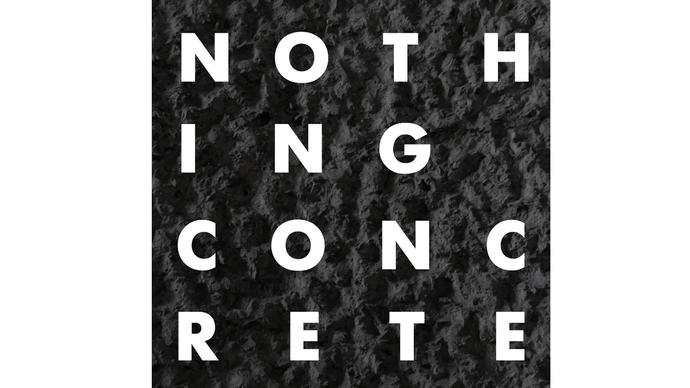
Nothing Concrete: Sound Unbound with Steve Reich
In our new series, Josie Long talks to creative minds about the music that moves them. First up, Steve Reich speaks about the profound impact hearing Igor Stravinsky’s The Rite of Spring at 14 had on him and his future career as a composer.

Listen: Contemporary Music on Spotify
Follow our regularly updated Contemporary Music playlist for a sample of the music you'll hear across our programme. Shuffle recommended.
You might also like
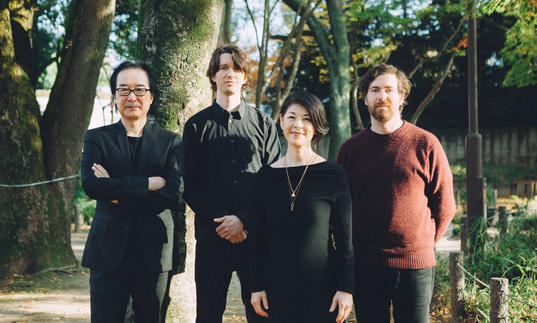
Barbican Hall
Location
The Barbican Hall is located within the main Barbican building. Head to Level G and follow the signs to find your seating level.
Address
Barbican Centre
Silk Street, London
EC2Y 8DS
Public transport
The Barbican is widely accessible by bus, tube, train and by foot or bicycle. Plan your journey and find more route information in ‘Your Visit’ or book your car parking space in advance.
We’ve plenty of places for you to relax and replenish, from coffee and cake to wood-fired pizzas and full pre-theatre menus
Mobility
Spaces for wheelchair users in row U at the rear of the stalls (up to sixteen, depth of row 180cm) and the back row of the circle (four), both with fold-down companion seats. Some seats in row S of the stalls for people with very limited mobility.
Assistance dogs
Assistance dogs may be taken into the concert hall where there are a limited number of suitable seats in row G of the stalls. If you prefer, you may leave your dog with a member of the cloakroom staff during the performance.
Hearing facility
There is an induction loop in the concert hall. You can use this by adjusting your hearing aid to the ‘T’ setting.
Free large-print programmes
These are available for most of our concerts. Please contact access@barbican.org.uk at least a week beforehand, to prebook a large-print programmme.
For more access information, please visit our Accessibility section.
Plan your visit
Meet friends, grab a drink, drop in to one of the free installations on Level G before the show - here's what else is happening at the Barbican when you visit.

Liberation through Photography
